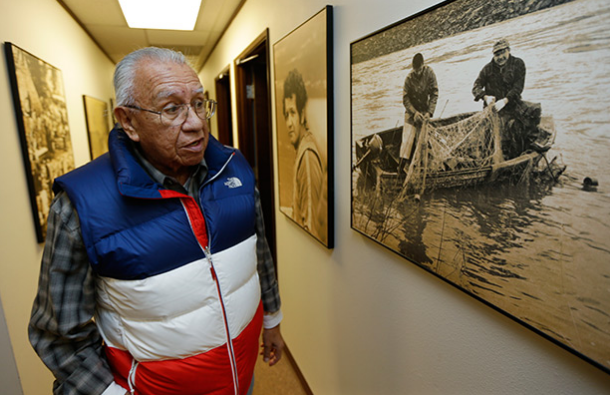The Associated Press
OLYMPIA — A national wildlife refuge near Olympia has been renamed in honor of Native American civil rights leader Billy Frank Jr.
U.S. Interior Secretary Sally Jewel, U.S. Sen. Maria Cantwell, U.S. Rep. Denny Heck and Nisqually Tribal Council chairman Farron McCloud are among those attending Tuesday’s celebration at the renamed Billy Frank Jr. Nisqually National Wildlife Refuge.
Frank, who died in 2014, was a Nisqually tribal fisherman who led the “fish wars” of the 1960s and ’70s that restored fishing rights and helped preserve a way of life for Native Americans in the Pacific Northwest.
He and others were repeatedly arrested for fishing in the Nisqually River as they staged “fish-ins,” or acts of civil disobedience similar to sit-ins, to demand the right to fish in their traditional places.
Boldt decision
His activism paved the way for the landmark Boldt court decision, which affirmed the rights of Western Washington treaty tribes to half the fish harvest in the state.
Tuesday’s ceremony also celebrates the newly established Medicine Creek Treaty National Memorial, which commemorates the spot in 1854 where tribes signed the Medicine Creek Treaty with the U.S. government. The tribes include the Nisqually, Squaxin Island Tribe, Puyallup Tribe of Indians and Muckleshoot Indian Tribe.
The treaty was signed in a grove of trees near what is now McAllister Creek in the refuge.
The tribes ceded land to the U.S. government but reserved their rights to fish, hunt and gather in their traditional places.
For decades, Frank fought to hold the federal government to those treaty obligations.
Medal of Freedom
In November, Frank was posthumously awarded the Presidential Medal of Freedom by President Barack Obama.
A month later, Obama signed into law the “Billy Frank Jr. Tell Your Story Act,” which renamed the wildlife refuge.
The 2,925-acre preserve was created in 1974 and protects one of the few relatively undeveloped large estuaries left in Puget Sound.
It’s an important stop for migratory birds along the Pacific Flyway. It’s managed by the U.S. Fish and Wildlife Service.

